National Public Health Week 2021
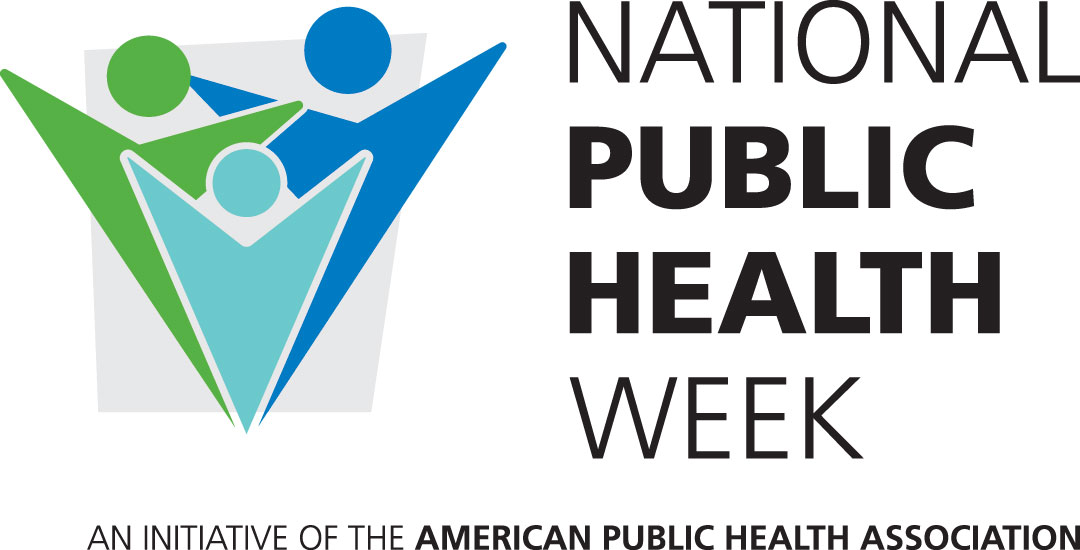 About NPHW About NPHW
Each year, the American Public Health Association (APHA) recognizes National Public Health Week (NPHW) during the first full week of April. NPHW is an opportunity for public health professionals, policymakers, and the broader community to join together in promoting health and preventing illness. On the 26th annual NPHW, the theme for this year's event is
Building Bridges to Better Health - April 5-11, 2021
Public health is not just for public health professionals. It affects us all -- at work, in our schools and in our day-to-day life. It affects our access to resources, and more. The COVID-19 pandemic has highlighted the need for building bridges between communities, grassroots organizations, and public healthcare systems. As we emerge from the pandemic, we don't want to return to the status quo. Instead, we have an opportunity to work together to strengthen our public health system, increase health equity, and improve the nation's overall health.
As a interdisciplinary organization committed to health equity and the mental and physical well-being of all people, the Global Alliance is joining the weeklong campaign advocating for "building bridges to better health." We believe that everyone should have access to the healthcare resources they need – not just in crisis but at all times.
Daily Themes
Monday: Rebuilding
Tuesday: Advancing Racial Equity
Wednesday: Strengthening Community
Thursday: Galvanizing Climate Justice
Friday: Constructing COVID-19 Resilience
Saturday: Uplifting Mental Health & Wellness
Sunday: Elevating the Essential and Health Workforce
Monday: Rebuilding
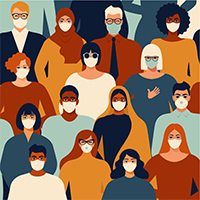
Today's focus on rebuilding really reverberates throughout each day of National Public Health Week. As we work towards rebuilding in the wake of the COVID-19 pandemic, we have an opportunity to create stronger, more equitable and more inclusive communities and systems. If we are to be prepared for future public health crises, we must learn from this past year, both the failures and successes. Prevention and health promotion are critical pieces in saving lives and improving well-being.
Learn More
TAKE ACTION
- Join one of our task forces committed to working towards improved behavioral health and social justice
Tuesday: Advancing Racial Equity
Exploring key issues through an equity framework requires us to explore experiences and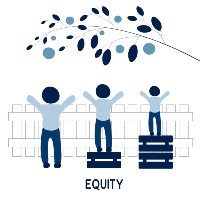 outcomes based on race and other social categories and interdependent systems of discrimination or disadvantage. Using an equity framework can help us all understand and address disparities across communities based on race, gender, language, religion, orientation, ability, socioeconomic status, and many other factors. outcomes based on race and other social categories and interdependent systems of discrimination or disadvantage. Using an equity framework can help us all understand and address disparities across communities based on race, gender, language, religion, orientation, ability, socioeconomic status, and many other factors.
LEARN MORE
TAKe ACTION
- Examine and confront your own implicit or explicit racial biases. Be willing to acknowledge the ways you may have benefited from unjust structures and systems
- Initiate hard conversations with friends, family, colleagues, and neighbors in regards to the role of racism in our lives and our society
- Speak up when you see or hear racism, initiating and/or participating in dialogue about the issue
- Join in local events, rallies, or programs that support inclusion and reduce marginalization
- Support the work of organizations like the Global Alliance that are actively seeking to eliminate racism
- Integrate racial justice into policymaking, services, programs, and budgeting
- Let people of color lead the discussions and efforts to advance change
Wednesday: Strengthening Community
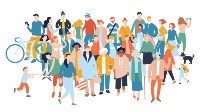 As research reveals, the social determinants of health are not equally distributed across all communities. Residents of low-income areas and communities of color are much more likely to experience harmful conditions that negatively influence their health including greater exposure to environmental hazards and limited access to parks and green space as well as affordable and quality food. As research reveals, the social determinants of health are not equally distributed across all communities. Residents of low-income areas and communities of color are much more likely to experience harmful conditions that negatively influence their health including greater exposure to environmental hazards and limited access to parks and green space as well as affordable and quality food.
The COVID-19 pandemic has exacerbated these long-standing inequities, especially related to testing, treatment, and vaccination. The pandemic has also disproportionately impacted mental health among communities of color. As we start to recover from the effects of the COVID-19 pandemic, it is important that we work with communities to address the barriers to equality in American economic, housing, and healthcare systems, all of which can undermine health and well-being.
LEARN MORE
Take Action
Thursday: Galvanizing Climate Justice
 Climate change may be the most serious threat to the public's health facing us today. Climate-related disasters can cause anxiety-related responses and severe mental health disorders. Climate change and related disasters can result in people losing their home or job and becoming disconnected from their neighborhood and community. Climate change may be the most serious threat to the public's health facing us today. Climate-related disasters can cause anxiety-related responses and severe mental health disorders. Climate change and related disasters can result in people losing their home or job and becoming disconnected from their neighborhood and community.
Some people, including children, the elderly, the chronically ill, and people living in lower-resource communities are among those who are more vulnerable to the effects of climate change. A public health approach to climate change is critical to preventing injuries and illness, to strengthening preparedness, and to reducing risk.
LEARN MORE
TAKe ACTION
- Grants, loans, and tax incentives can encourage the construction of more wind capacity and ongoing innovation
- Because forest restoration is such a potent solution, commitments and funding need to be a global priority
- Advocate for improving infrastructure for storage, processing, and transportation of food to reduce food waste
- Reach out to local officials to support climate change and environmental justice
- Power your home with renewable energy. Healing the planet can start in your garage, in your kitchen, and at your dining room table
Friday: Constructing COVID-19 Resilience
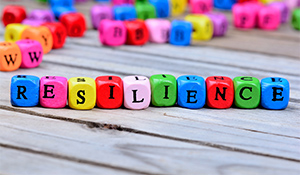 The coronavirus itself does not discriminate. All people are susceptible. However, the responses of governments around the world have exacerbated inequalities. Those already vulnerable due to their circumstances – location, access to resources, poverty, instability, etc. – are more likely to have suffered additional harm due to reactionary measures taken to curb the spread of the virus. For example, many of our nation's homeless were criminalized for their inability to observe government mandated lockdowns. The coronavirus itself does not discriminate. All people are susceptible. However, the responses of governments around the world have exacerbated inequalities. Those already vulnerable due to their circumstances – location, access to resources, poverty, instability, etc. – are more likely to have suffered additional harm due to reactionary measures taken to curb the spread of the virus. For example, many of our nation's homeless were criminalized for their inability to observe government mandated lockdowns.
If we are to construct more resilient communities going forward, we have to build a more equitable public health system. We must evaluate all potential policy changes through a human rights lens. However, even as we envision a healthier future, in order to move forward with resilience, we must also not forget to address the stress, fear, grief, and trauma caused by this pandemic.
LEARN MORE
- Listen to our podcast from October 2020 on Adversity and Resilience in Children and Families.
- Read about resilience in the American Journal of Orthopsychiatry
- Wippold, G. M., Tucker, C. M., Kroska, E. B., & Hanvey, G. A. (2021). Perceived socioeconomic status and health-related quality of life (HQoL) among urban adults: Evaluating the protective value of resilience. American Journal of Orthopsychiatry, 91(1), 20-26. https://doi.org/10.1037/ort0000514
- Boullion, G. Q., Pavlacic, J. M., Schulenberg, S. E., Buchanan, E. M., & Steger, M. F. (2020). Meaning, social support, and resilience as predictors of posttraumatic growth: A study of the Louisiana flooding of August 2016. American Journal of Orthopsychiatry, 90(5), 578-585. https://doi.org/10.1037/ort0000464
- Vargas, S. M., Huey Jr., S. J., & Miranda, J. (2020). A critical review of current evidence on multiple types of discrimination and mental health. American Journal of Orthopsychiatry, 90(3), 374-390. https://doi.org/10.1037/ort0000441
Take Action
- Educate yourself on the vulnerabilities in your own community that were exacerbated due to COVID-19 and the government's response
- Volunteer with an organization in your community aiming to care for people who have been negatively affected by the pandemic
- Make choices that promote resilience in your own life: get enough sleep, eat healthy foods, exercise, maintain social connections with others, practice mindfulness, etc.
- Reach out to someone in your community who may be feeling isolated
Saturday: Uplifting Mental Health & Wellness
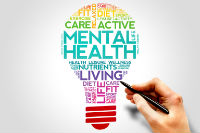 Mental health is a critical component of public health. Over the last year, the COVID-19 pandemic and social, political, and economic unrest has affected mental health in many ways, including through the loss of loved ones, increased isolation due to social distancing requirements or infection, loss of income, and increased caregiving responsibilities. About a fifth of US adults are experiencing high levels of psychological distress according to a recent report. Not surprisingly, younger adults (18-24), people of color, LGBTQ+ individuals, and essential workers have experienced the highest levels of mental health symptoms. Due to this, it is important not only to develop ways to cope with anxiety and stress such as practicing mindfulness, eating a well-balanced diet, engaging in physical activity, and getting at least 8 hours of sleep each night but also to find ways to promote mental health and wellness. Mental health is a critical component of public health. Over the last year, the COVID-19 pandemic and social, political, and economic unrest has affected mental health in many ways, including through the loss of loved ones, increased isolation due to social distancing requirements or infection, loss of income, and increased caregiving responsibilities. About a fifth of US adults are experiencing high levels of psychological distress according to a recent report. Not surprisingly, younger adults (18-24), people of color, LGBTQ+ individuals, and essential workers have experienced the highest levels of mental health symptoms. Due to this, it is important not only to develop ways to cope with anxiety and stress such as practicing mindfulness, eating a well-balanced diet, engaging in physical activity, and getting at least 8 hours of sleep each night but also to find ways to promote mental health and wellness.
LEARN MORE
Take Action
- Advocate and educate to reduce the stigma associated with mental health conditions
- Strengthen community prevention, through the provision of crisis counseling, behavioral health screening, and early intervention services
- Lead by example – promoting your own personal resilience and well-being, and that of your colleagues
- Promote social connectedness
- Collaborate with community partners, academics, researchers, policymakers, and other service providers to help strengthen mental health and wellness across communities
Sunday: Elevating the Essential and Health Workforce
According to the American Journal of Public Health, approximately 75% of the U.S. workforce is employed in occupations (such as healthcare, retail, manufacturing, and food service) that could not shift to remote work during the pandemic. Many lost their jobs as stores and restaurants closed, temporarily or permanently, and those who continued to work in person faced elevated risks for exposure to COVID-19, childcare challenges as students moved to virtual learning, and stress-induced mental and physical health concerns.
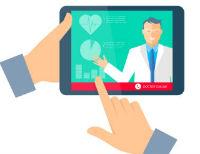
In the case of healthcare, when a global pandemic was declared on March 11, 2020, people around the world suddenly lost access to their regular healthcare options. Telehealth, previously underutilized, saw a swift surge in popularity. The Global Alliance has joined other advocacy groups in supporting legislation to increase the availability of telehealth options and to require insurance coverage for virtual care. As the world continues to recover from the COVID-19 pandemic, we see telehealth as a potential pathway for strengthening healthcare for all people and reducing disparities in access and care options, particularly in the realm of behavioral health.
LEARN MORE
Take action
- Support efforts to protect yourself and others, especially essential and healthcare workers, from the spread of disease. Wear a mask, wash your hands, practice social distancing, and get vaccinated
- Join in advocating for legislation in support of a robust telehealth program
- Take the time to thank someone, such as a healthcare professional, who has put themselves at risk to serve others during the pandemic
- If you or a family member is struggling with mental health or substance use, call the Substance Abuse and Mental Health Services Administration (SAMHSA) free helpline at 1-800-662-HELP (4357) to receive referrals for treatment options
|